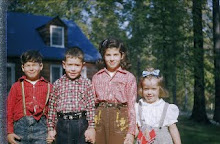23
These excercises were have been periodically challenging, due to the limited direction provided in the process, (not unlike doing information searches!) Luckily, I use digital resources consistently, so the process was about figuring it all out.
I think this is a superb series of exerises to keep staff aware of innovations in social networking and web 2.0 technology. It took quite a bit of time to complete.
